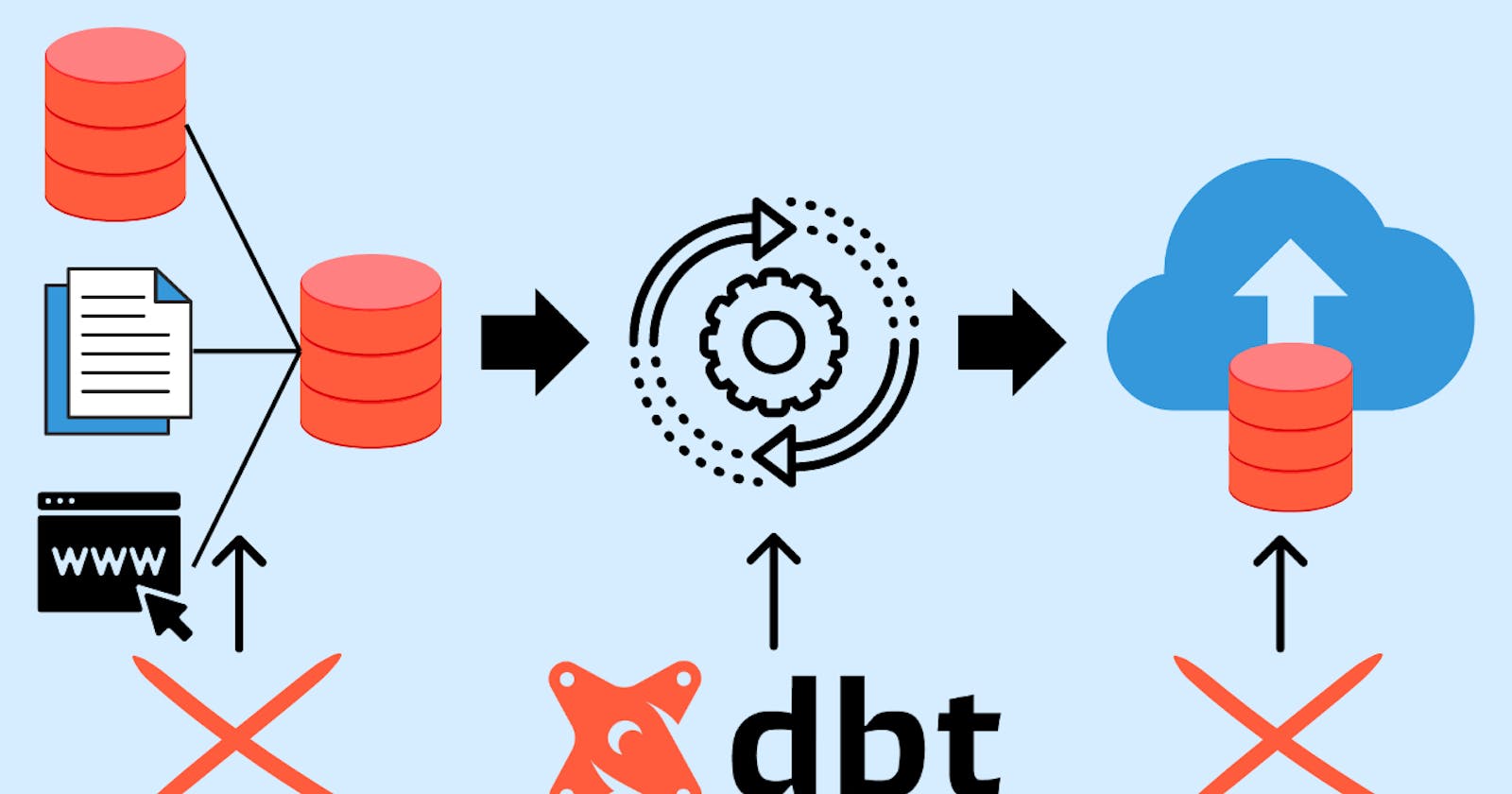Simplifying Data Transformations with dbt: A Comprehensive Guide
Enhancing Efficiency, Collaboration, and Data Quality in Data Warehouses using DBT
Table of contents
Introduction
In the realm of data analytics and engineering, the process of transforming, testing, and managing data in data warehouses can be complex and time-consuming. However, with the emergence of dbt (data build tool), data analysts and engineers now have a powerful open-source command-line tool at their disposal. In this blog post, we will delve into the key features and benefits of dbt, exploring how it streamlines data workflows and enhances productivity.
What is dbt?

DBT, or data build tool, is a command-line tool designed to facilitate efficient data transformations. Built on the foundation of SQL and tailored for data warehouses, dbt empowers data teams to define and execute transformations using SQL queries. It provides a modular and reusable framework that simplifies the management of data models and enables collaboration among team members.
Features of DBT
- Streamlining Data Transformations
One of the primary advantages of dbt is its ability to streamline data transformations. By treating data transformations as code, dbt promotes modularity and reusability. Analysts and engineers can create modular SQL code, defining transformations in a structured and easily maintainable manner. This approach facilitates collaboration and allows teams to build a library of reusable code snippets, expediting the development of data pipelines.
- Writing Tests and Ensuring Data Quality
Data quality is of paramount importance in any data-driven organization. dbt offers robust testing capabilities to ensure the accuracy and integrity of data. With dbt, users can write tests using SQL queries to validate the expected output of data transformations. These tests can be run automatically, enabling teams to identify and rectify issues early in the data pipeline. By establishing a culture of data quality, dbt helps organizations make informed decisions based on reliable insights.
- Generating Documentation
Documentation is often overlooked but is crucial for maintaining a clear understanding of data pipelines. dbt simplifies the documentation process by automatically generating comprehensive documentation for data models. By utilizing Markdown syntax, analysts and engineers can describe the purpose, logic, and usage of data models. This documentation remains up-to-date as models evolve, serving as a valuable resource for team members to comprehend and troubleshoot data transformations.
- Incremental Processing and Performance Optimization
Traditionally, full data pipeline runs can be time-consuming and resource-intensive. dbt addresses this challenge by supporting incremental processing. It identifies changes in the data since the last run and processes only the modified or new data, significantly improving performance and reducing processing time. This feature is particularly advantageous for large datasets or when frequent pipeline execution is required.
Quickstart with dbt
To begin your journey with dbt, here are some relevant links:
Official dbt documentation: Link
Installation and setup guide: Link
Creating your first project: Link
Conclusion
In the ever-evolving field of data analytics and engineering, dbt stands as a powerful tool that simplifies and streamlines data transformations. By leveraging SQL and incorporating best practices from software engineering, dbt empowers data teams to develop efficient data pipelines. With features like modularization, test-driven development, automatic documentation generation, and incremental processing, dbt enhances productivity, fosters collaboration, and improves data quality. By embracing dbt, data analysts and engineers can unlock the full potential of their data warehouses and drive data-backed insights for informed decision

